Thomas E. Ricks's Blog, page 240
July 18, 2011
Navy CO jettisoned
July 15, 2011
Was John F. Kennedy the flat-out absolute worst U.S. president of the 20th century?

As I studied the Vietnam war over the last 14 months, I
began to think that John
F. Kennedy probably was the worst American president of the previous century.
In retrospect, he spent his 35 months in the White House
stumbling from crisis to fiasco. He came into office and okayed the Bay of Pigs
invasion. Then he went to a Vienna summit conference and got his clock cleaned
by Khrushchev. That led to, among other things, the Cuban missile crisis and a
whiff of nuclear apocalypse.
Looming over it all is the American descent into Vietnam.
The assassination of Vietnam's President Diem on Kennedy's watch may have been
one of the two biggest mistakes of the war there. (The other was the decision
to wage a war of attrition on the unexamined assumption that Hanoi would buckle
under the pain.) I don't buy the theory promulgated by Robert McNamara and
others that Kennedy would have kept U.S. troops out. Sure, Kennedy wanted out
of Vietnam -- just like Lyndon Johnson wanted out a few years later: We'll
scale down our presence after victory is secure. And much more than
Johnson, Kennedy was influenced by General Maxwell Taylor, who I suspect had
been looking for a "small war" mission for the Army for several years.
Indochina looked like a peachy place for that -- warmer than Korea, and farther
from Russia.
(As a side note, there's another coup that JFK supported
earlier in 1963: the Baathist
one in Iraq that chucked out a pro-Soviet general. Events in subsequent
decades obviously are not Kennedy's fault, but it still is interesting to look
at the documents. Here's a State Department sitrep
from, of all dates, Nov. 21, 1963: "Initial appraisal cabinet named November 20
is that it contains some moderate Baathis. Of twenty-one ministers, seven are
holdovers from previous cabinet, thirteen are civilians, four are from moderate
Shabib-Jawad faction of Baath (Defense --
Tikriti; Communications -- Abd al-Latif; Education -- Jawari; Health -- Mustafa)
and a number of technician-type civil servants." Did you notice the name of
that defense minister? I think this might have been Saddam Hussein's uncle.)
Anyway, I think his track record kind of makes even old
Herbert Hoover look good.
Tom Ricks, was born in Massachusetts and is the grandson and
great-grandson of Democratic politicians there.
Extreme measures: North Korea said to kill 30 of its negotiators with South Korea

That seems a bit extreme, even for
Pyongyang. But a South Korean press quotes a South Korean government source as
saying that:
"Thirty people have
been confirmed to have died or gone missing until recently. About 10 partners
of inter-Korean talks with the South were executed by firing and about 20
others were said to have died in traffic accidents."
"As
of now, the North has no partners to talk with the South. There will likely be
major change in inter-Korean relations."
Hmm.
(HT
to D "House" M)
Cars and a hooker: JOs don't handle money much better than enlisted do
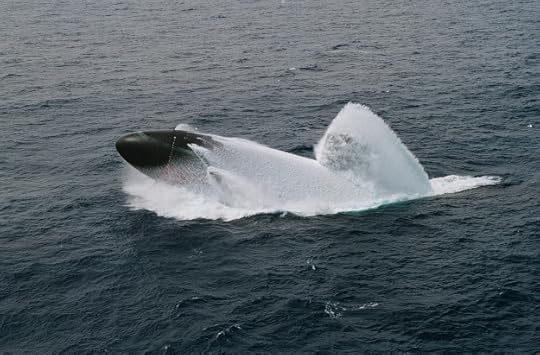
By "Devil Dog," USMC
Best Defense department of Romanian military
strippers
In his insightful post
the other day, Jim Gourley wrote, "the truth is that a great many enlisted
military members are very poor money managers."
Unfortunately, the truth is that many of the
junior officers in charge of them often aren't that much better. In addition to
the $30,000 loan that every Second Class Midshipman
is offered and most take (myself included), I personally know of several of my Naval Academy classmates (I graduated
a coupla years back) who have massive credit card debt and hefty car loans. If
you think the mustang parade at Ft. Campbell is impressive, you should see the
one in Annapolis after evening meal formation on a Friday night. And as for
putting bonuses to good use, I know of one former Midshipman who spent $3,000
of his $15,000 submarine officer bonus on a prostitute.
The Naval Academy tries to prevent this kind of
irresponsible behavior through required financial briefings at the beginning of
each semester (and ethics classes
for the prostitute aspect), and many young officers do make responsible and intelligent
financial decisions. Many of us have monthly budgets and used our $30,000 loans
to invest for our retirement or to buy the $2,000 in new uniforms that all the 2nd Lieutenants
had to purchase out of pocket. However, there were many who spent, and continue
to spend, their money unwisely. This begs the question: how can we improve the
financial habits our young enlisted soldiers, sailors, airmen, and marines when
many of the junior officers responsible for them are financially irresponsible?
July 14, 2011
Drucker on dissent and imagination, and Eisenhower on the related necessity of surfacing bureaucratic differences
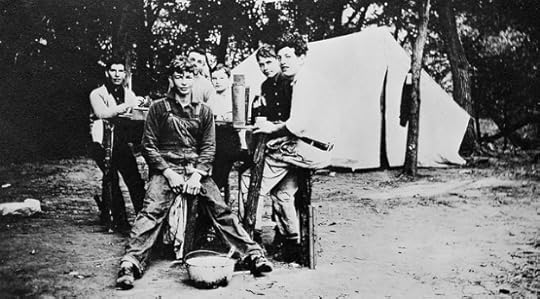
Somewhere in Supreme
Command, supreme strategist Eliot Cohen discusses the importance when
formulating strategy of surfacing differences rather than papering them over,
which is the general impulse in Washington.
I thought of that
when I read this comment in an oral history given by Douglas MacArthur II,
nephew of the awful general and, during the 1950s, one of Cohen's predecessors
as counselor to the State Department:
... the president [Eisenhower] and I went over
to Mr. Dulles and the president said he wanted me to coordinate the policy
plans and policy for the meeting. He said, 'Doug, there's one thing I won't
have.' He said, 'I know your bureaucratic language where there are differences,
you smother those differences with general language, and then every department
goes its own separate way.' He said, 'That's the sure road to disaster.' He
said, 'I want, when there are disagreements, I want first to find out if the
two secretaries or three secretaries, if Treasury is involved or somebody else,
can iron out their difficulties. If they can't I want those issues brought with
clear, separate and distinct positions that differ to me. And then I will
decide what our position is going to be.' He said, 'The last thing in the world
that we can afford is that wonderful bureaucratic language that you guys are so
great at inventing where it's nice and general and it means everything to all
people and each one goes his separate way.' He said, 'That's no way to go.'
(P. 42, Douglas
MacArthur II oral history, Eisenhower Library)
The more I learn about Eisenhower as
president, the more impressed I am.
By coincidence, in my research for my current
book, I've also been reading, because it gets into George C. Marshall's
handling of generals, Peter Drucker's The
Effective Executive. Drucker hits a similar theme and develops it
further. Not only is it important to surface dissent, a decision should not be
made if there is no dissent, because real decisions by their very nature are
difficult and contentious. Moreover, he says, imagination is needed to make
good decisions. And the way to tap the imagination, he says, "is argued,
disciplined disagreement." (P. 153 of my edition)
How to block military reform: Step one
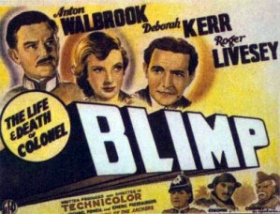
This passage in a
2007 essay by retired
Army Brig. Gen. Huba Wass de Czege seems to me to speak, perhaps, to the
Army's Five
Fingers controversy:
If you want to block
reforms, install a 'council of colonels' to guard the gates of change. No one
is as conservative or as arrogant as a staff colonel in the comfort zone of his
expertise.
(P. 10)
Charge of command
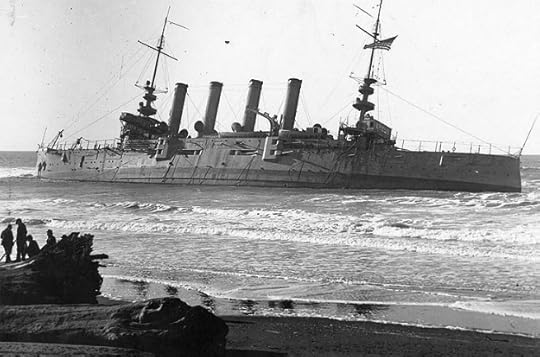
By Capt. John Byron,
USN (Ret.)
Best Defense office
of nautical affairs
Admiral Gary Roughhead, outgoing Chief of Naval Operations, last month issued a
memorandum
to current and prospective Navy commanding officers reminding them of their
traditional and statutory duty in command. He implemented this with a directive
that COs and PCOs meet with their ISIC (Immediate Superior In Command) to
discuss the topic and leave behind a copy of the memo with their signature on
it.
Some (I'm one) see this as an example of what
Ernie King called "orders to follow orders," a pernicious practice
that substitutes for more effective leadership. I also see frustration stemming
from Roughhead's otherwise fine tour as CNO being tainted by the recent series
of command screwups in the Fleet (which, BTW, he has no direct authority
over).
Some serving officers think this aimed more
at members of the flag-officer community as reminder of their duty
to make things turn out right. And many welcome this as a useful comment
on why command at sea is so distinct, seeing this a useful tool in training
PCOs in the pipeline.
Useful? Silly? Redundant?
Effective? Your thoughts?
Obama to Navy: Give me $10 billion

So says The
Hill. This snowball
is only going
to get bigger.
Meanwhile, in other
Navy news, the XO of the USS Green Bay walked
the plank.
(HT to Spencer Attackerman)
July 13, 2011
A memoir of the National War College and its 'technical school' approach
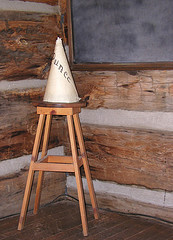
Some people think I
have it in for the
War Colleges. Nope, I don't.
I think they just need to justify their existences, or face closure as the
defense budget implodes in the coming years. So by prodding them now I may be
helping them tomorrow. (You're welcome, Air
War College!) And if they cannot justify their costs, they should indeed be
closed.
I mention this
because the friendly mailman brings a book
by Howard Wiarda, a professor of
international relations at the University of Georgia who spent some time
teaching at the National War College. BLUF: He
was not impressed.
Here are some of his
conclusions:
1. The War College
was extremely authoritarian and top-down. It did not function like any college
(lower case) that I'd ever seen. It was not a 'college' or 'university' at all
but a military base run on a command system. It had not made the compromises
necessary to be both a military institution and a serious teaching and
educational institution.
2. The curriculum … was more like a manual in a technical school than a serious graduate
curriculum.
3. … There was
no room for new or original ideas …
8. I don't think the
military brass who run NWC … have the foggiest notion of what a college or
university is all about."
(pp. 152-153)
The Persian mistress at the breakfast table: Tales of the Bhutto childhood

This note from a genuine old AfPak
hand arrived over the weekend. Yup, I've ordered the Rushdie novel :
You
surely know that one of the most psychologically formative experiences for the
young Benazir was growing up in a house where her father (Zulfikar) gave his
Persian mistress pride of place in the home. Benazir would come to breakfast
with her father and mistress at the table while her mother ate from a tray quietly
and alone in her bedroom in another wing of the house. When one tries to
understand how Benazir came to have her husband kill her brother, it helps
to know what a strange childhood she had. Salman Rushdie's thinly-veiled roman
a clef about the Bhuttos and Zia, Shame, captures some of
this atmosphere quite well.
Thomas E. Ricks's Blog
- Thomas E. Ricks's profile
- 436 followers




